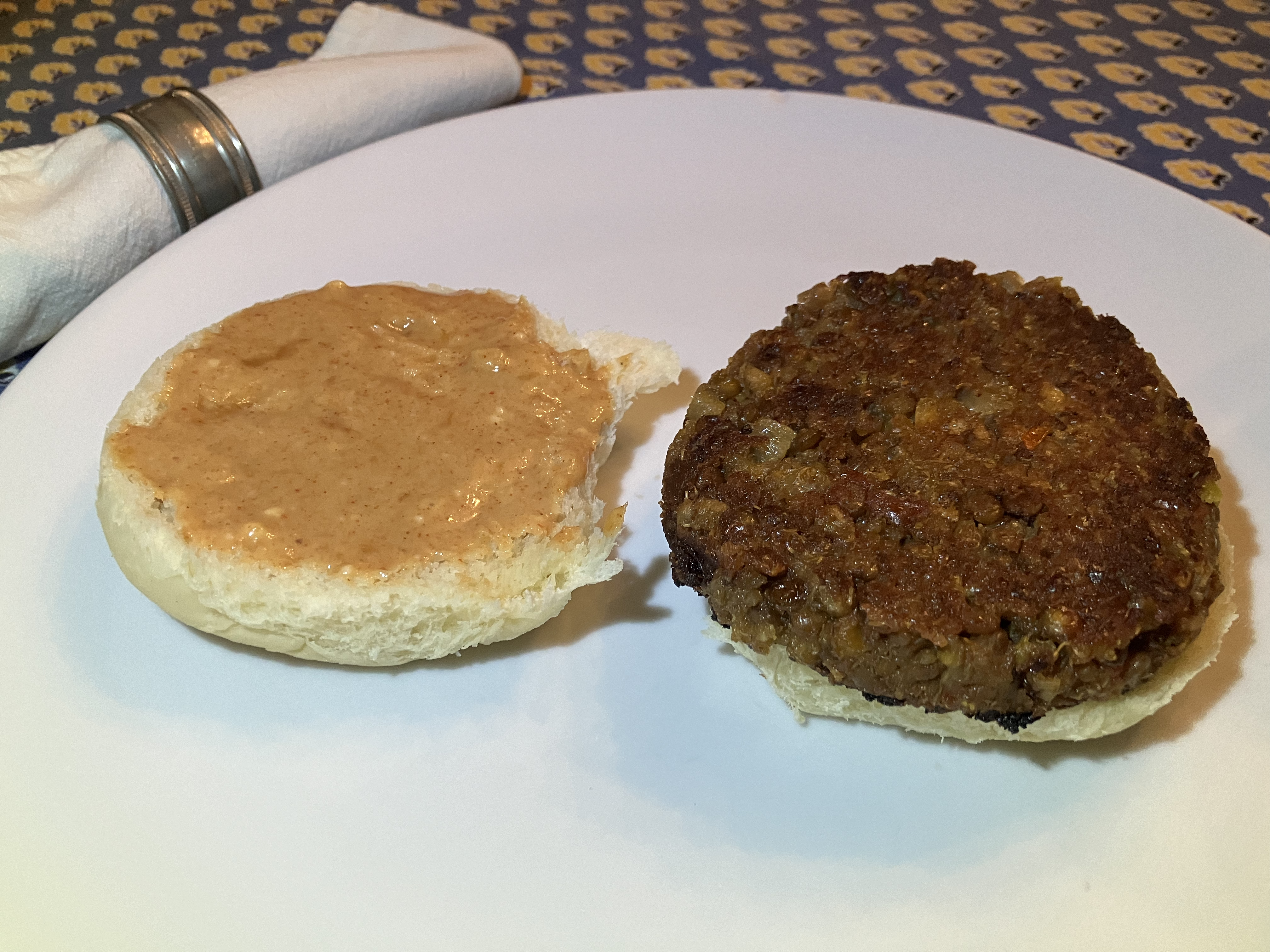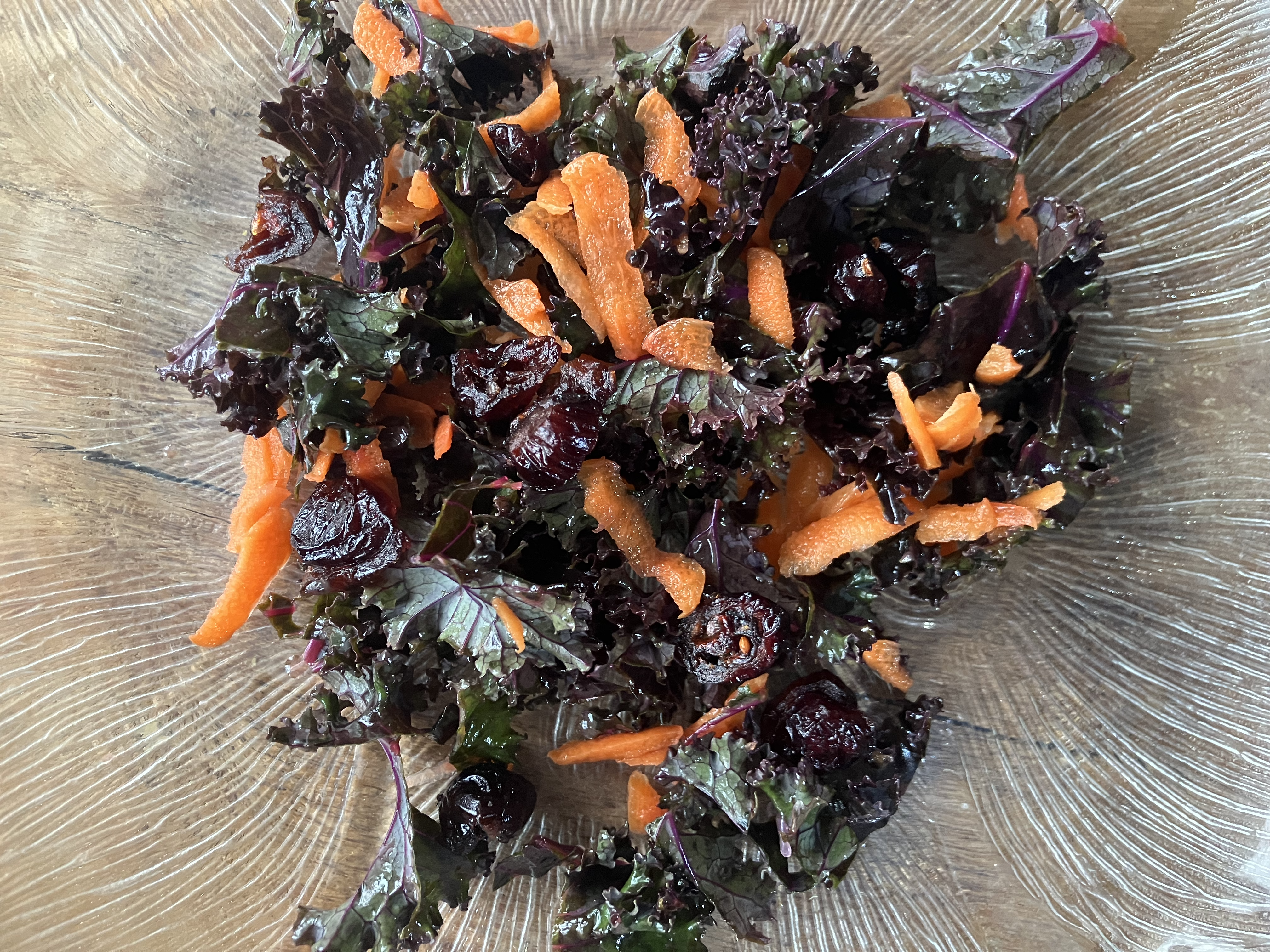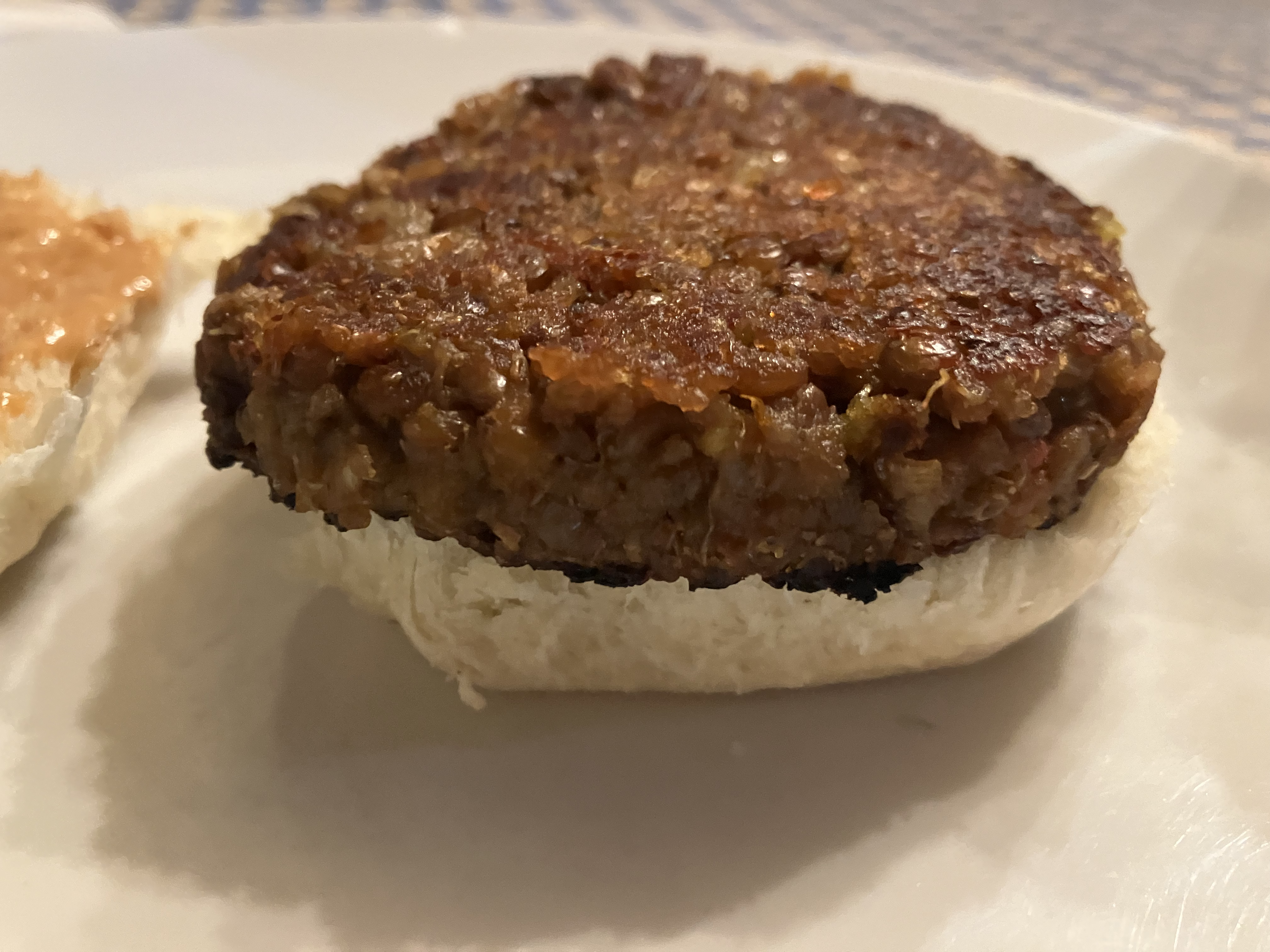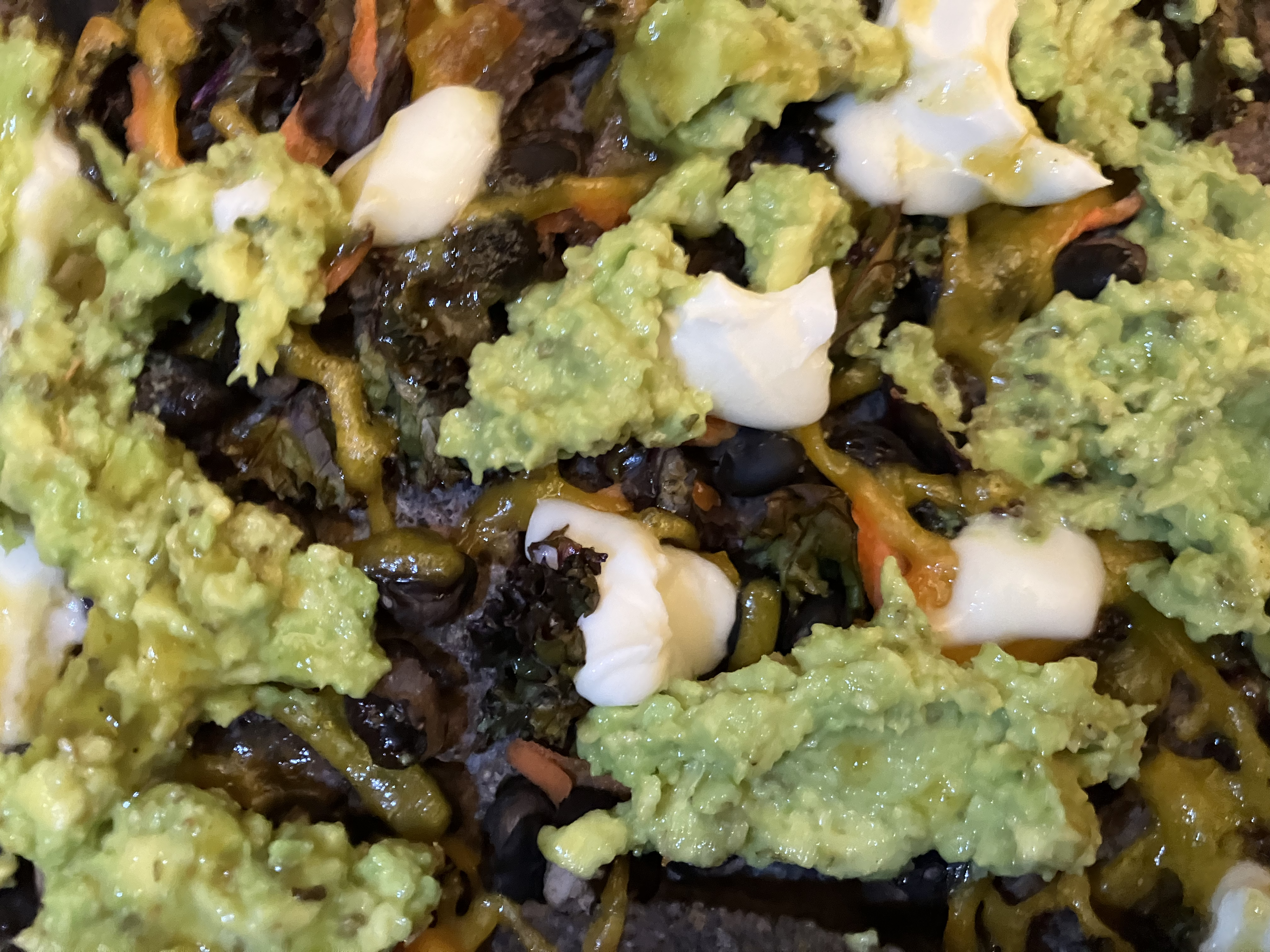|


Quinoa Lentil Burgers with Kale Slaw
Yonah K. (original recipe)
My parents each lived in Massachusetts for a time before meeting each other (in Guatemala).
I've been to Massachusetts several times and always had a good time. The
cities are fun and the countryside is pleasant. I want to say it's very New
England but yeah.
Massachusetts (especially Boston) makes me think of colleges. There is a lot of
talk about canceling student debt, which is fine if a little thorny, while I
think prevention of debt in the first place makes tons more sense. That way,
people know the deal going in, and it's a sustainable solution rather than a
weird one-time occurrence or else repeated occurrences. A solution, I say,
because debt is coercive. Rich people like it because it forces people to
take crappy jobs and they make money off of cheap labor. The middle class
tolerates it because they benefit too, although increasingly the middle class
is finding itself debt-burdened and forced into careers that don't always reflect
their own values or best abilities.
Some debt is inevitable but we shouldn't embrace a system where high
levels are assumed. It used to be a middle class aspiration, to save up
and pay for a child's education. Policies that lift the poor out of poverty
(or that threaten to tax the rich down into the middle class) will only work
if we carve out a place for middle-class aspirations. My solution is the
government funds two years of further education. This way, we are cutting
student debt approximately in half, but there is still an economic dimension
of whether to finish your degree, in what field, and at what institution.
I went to Cornell, where we believe any person should be able to study
any subject. College might not be for everyone, but it can potentially
benefit anyone in any field, and no one should be kept from the college
experience because of the ability to pay. Privileged people get to get
degrees in Art History they'll never use but poor people don't? My plan
is only fair and it makes sense. We want to have an educated society so
that we have a strong society and functional democracy. I don't want to
be dismissive of people who don't go to college, but I want it to be a
choice. If people who wouldn't typically go to college end up in schools
with the typical college-goers, that can only be a good thing for society.
The better our colleges reflect our diverse society, the better we prepare
students for living in that society. In general, if college comes easier
for some of us than others, then it will benefit us to put our own personal
ambitions aside and take the time to help out those who are having more
difficulty.
Is it fair to people who don't go to college? I think it's just a natural
extension of grade-school public education. It's a good thing for society,
so we ask even people without children, or those who attend private schools
or who homeschool, to help pay for it. Should it be means-tested? Means-testing
is necessary sometimes but it's not great policy approach generally. It tends to hurt
the middle class, and why not pay for rich kid's college since the rich will
pay the taxes that fund the program (they come out even, and everyone else
benefits). Conversely, if you didn't go to college,
either you don't have a great job and hopefully don't pay much tax (though
consider free non-college further training/education), or else congratulations,
you have a good job and didn't waste 4 years of your youth studying.
As a general rule, I don't make veggie burgers. Frozen veggie burgers
aren't great but they are extremely convenient, and many neighborhood
restaurants serve a decent veggie burger, again, extremely convenient.
But if I were a kid who cooked, I can see wanting to make your own, and
I thought it would be a worthy challenge, to follow a child's recipe.
Yonah has a nice story but I'm not sure how to relate it to education.
If you are following along in the pdf, you will know she challenged
herself to use up ingredients that would otherwise be thrown out as
they cleaned out the house for Passover. I had to read about Passover
because I couldn't quite remember the deal. Passover isn't until April but
I am not a Jew so I figured why not take inspiration now and clean out
my fridge. Since I am not God's chosen people I don't think I need to
worry about the details, merely acknowledge, cleaning one's home is a
necessary ritual. I guess the other message you can take is not to
overdo it (you know, with mundane housework the rest of the year).
Burgers
- 1/3 cu. dried Green lentils
- 2 Tbs. + 2 tsp. BBQ sauce
- Garnish (optional): tomato slice and lettuce leaf
Kale Slaw
Awesome Sauce
- 1 scant 1/2 tsp. Agave syrup or honey
Preparation
Combine quinoa, lentils, and water in a small pot. Bring to a boil, then lower the
heat, cover, and cook for 30 minutes, until the quinoa and lentils are tender.
Heat oil in a pan, then saute the tomatoes and shallots for about 5 minutes.
Add the quinoa and lentils, soy sauce, and BBQ sauce and cook 2 minutes more.
Put the wasabi peas in the blender and coarsely blend. Then add 2/3 of the mixture
from the pan and blend until smooth. Return the blended portion to the pan and mix
thoroughly. Allow to cool, then form into patties.
Whisk together awesome sauce. Some would say, just eat your burger with condiments.
Nope. That's not what's happening.
Discussion

There is a lot to discuss... First, it was good! It looks like a burger, held together, and indeed it
was tasty.
At first I thought the ingredients would be a jumble, but when you examine them, each one makes sense.
Other than swapping shallot for onion, I pretty much stuck to the recipe as written. I found it was a
little too thick to blend in my blender but the process of transferring it to and from the blender did
a decent job of mashing it up.
Wasabi peas are a great snack but sadly contain palm oil. I bought mine in the bulk section so there
was no packaging with a potential explanation of its palm oil sourcing. Researching a different destination,
I stumbled upon a cultural defense of cooking with palm oil. I don't think wasabi peas fit into this
category. I think they probably fall into the category of fraught but I trust human ingenuity to find
a rainforest-friendly alternative in the near future. I guess they are a special treat meanwhile.
I'm ambivalent about Big Honey but I think small-scale beekeepers are mostly doing good work.
Unlike every other animal food product, we are not directly exploiting the reproductive cycle of bees.
They get to be normal bees. The larger the operation, the more commoditized the bees are going to be,
they will be moved around and stressed out and bee mortality is probably systemic. But I've kept bees
and if it's small scale, you are protective of your bees. Of course, large scale beekeeping operations
provide pollinator services for, for instance, the almonds for your almond milk. Can we imagine cropping
systems employed in a widespread way where natural pollinators, perhaps supplemented by small-scale local
beekeepers, are enough to
support locally-appropriate plantings? Sure. Honey is complicated, though,
especially when compared to the alternatives. I don't use a lot so I can buy local and spend a little
more to support small-scale beekeeping livelihoods. I almost didn't write about honey because I knew it
would be boring and I'd have to limit my discussion. But Yonah did raise the question.
I decided making a veggie burger was ambitious enough and that I would put off making the kale slaw
to a later time. I think kale is great but I didn't grow up eating it so I was a little scared to make
a slaw of raw kale. For this reason I bought baby kale which you will note appears in several recipes
posted to this site in recent days. Well I kept putting off Yonah's kale slaw until I realized it was
pretty much last minute and by this time my baby kale had spoiled so I decided, why not, be brave, try
regular kale, besides, I cleaned out the fridge and had plenty of room for it.
If you check out the pdf you will see the recipe is kind of confusing so I figured, hit
it with as much acid as I can and then let it sit for a day in the fridge and that is how I arrived at
the slaw depicted here.
But that's not all! If I have an abundance of prepared kale (and I do), and if today is
the Super Bowl (and it is), why not make fancy nachos for a first-class game day snack? The recipe is simple:
chips, black beans, leftover kale, vegan cheese, broil for 10 minutes, then top with guac (see, e.g.,
Maine), vegan sour cream, and green hot sauce. Yum! Of course, I am posting this after
the Super Bowl but
there is still plenty of basketball and hockey action to look forward to, if you need an excuse to
indulge. Or you can swap out some/all of the chips for roasted cauliflower and it will be
excellent, I promise you.

Next time I make this: More kale!
|
|